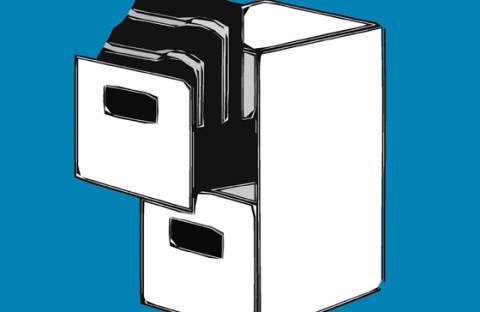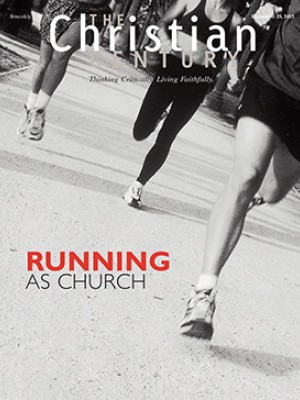A response to "Dress code" Case by case: Case by case

Read Ellen Blue's fictional narrative first.
While this is a “teachable moment,” Bill’s knock on the door will remind his minister that the words uttered at previous teachable moments in the pulpit and in the classroom have fallen on rocky soil. Bill attends worship regularly and even stays an extra hour for adult education. He has a vague awareness that how he drives his car and what he does in the office has something to do with his faith. That he prefers private to public places as an architect might suggest to us that Bill is more apt to act unobtrusively as a disciple than he is to articulate the gospel in public—more apt to “show” rather than “tell.”
Now he finds himself in a situation where his speech and action have everything to do with his faith. Despite a lifetime of listening to sermons that have wrestled with the complicated relationship between God’s chosen people and God’s adopted children, Bill does not know his mind on the matter. He also finds himself lost between two people who do: one whose newfound faith makes Bill long for a deeper commitment to God in his own life and another whose brand of commitment to the singular truth of the Christian religion makes him nervous.
Read our latest issue or browse back issues.
Bill’s first question concerns what he will say to Evan when he gets back to the office. Can a minister use this immediate issue as the occasion to address Bill’s deeper longing for a substantive faith that anchors his life in the God who brought Israel out of Egypt and raised Jesus from the dead?
This conversation has to do not with the general moral rules Bill has used to guide his daily life (which one applies?) but with ethics as a theological discipline. “As a theological discipline,” wrote Paul Lehmann in Ethics in a Christian Context, “ethics involves reflection upon life, upon the cement of human society, and upon morality from the standpoint of certain theological presuppositions.” These presuppositions may be those of Islam, Judaism or Hinduism, but Christian theological ethics “is the reflection upon the question, and its answer: What am I, as a believer in Jesus Christ and as a member of his church, to do?”
For Jerry Goodson, getting the answer to that question is a simple matter of going to the Bible and taking a particular text literally. Bill knows this is not how his minister or his Bible study group understands scripture in relation to complicated situations like this one. It might be helpful for Bill and his minister to read through Romans 9–11 with an eye toward Paul’s own struggle with God’s relationship to Jews who have rejected Jesus and to gentiles who have been grafted onto the one olive tree through faith.
The minister also might also draw on Has God Only One Blessing? Judaism as a Source of Christian Self-Understanding, by Mary Boys, or The God of Israel and Christian Theology, by R. Kendall Soulen, or Covenant and Hope: Christian and Jewish Reflections, edited by Robert Jenson and Eugene Korn. Bill is not the first person to wrestle with the relationship between Christians and Jews.
At the least, the minister can see that Bill gets back into his car knowing that his relationship to the God who raised Jesus from the dead is inextricably tied to Evan’s relationship with the God who brought Israel out of Egypt. Once Bill begins to know and is better at saying who he is becoming as a Christian, he likely will have more searching and daring theological conversations with Evan than with Jerry.
The second immediate question concerns what he will do in response to Jerry’s ultimatum: either Evan loses the yarmulke or their company will lose Jerry’s business. Why? Jerry’s eschatology dictates that Evan is going to be eternally damned; an ethic follows his eschatology that justifies his commitment to do business only with Christians or apparent Christians.
A different eschatology holds to the hope that, beyond human comprehension, there is a “roominess” in God (see Robert Jenson’s Systematic Theology) that invites us to treat the “other” as though we were going to spend eternity together. This eschatology leaves our final destination up to God and presses us, in the meantime, to seek out the stamp of God’s image in every other person we encounter—even Jerry.
Eternal life aside, to ask Evan not to be who he is in order to secure a contract would be to act as though Bill’s immediate future depended on the bottom line of a business rather than on the integrity of Bill’s relationship to his partner. The minister might suggest two ways of asking the same question in this situation or any situation where Bill’s witness to the gospel is on the line. The first is Lehmann’s question: What is God doing in the world to make and keep human life human? The second is Jenson’s important variation on the question of pop religion (WWJD), and it begins with the belief that God really did raise Jesus from the dead: “What is Jesus going to do?” Because Jesus is alive, says Jenson, he will always surprise us.
One surprising option for Bill is to get back in his car and, instead of driving to the office, drive back to the Eagle Christian Center. There he could engage Jerry in a different conversation, knowing now that his bottom line is an ongoing relationship with Evan that follows from his own relationship to Christ. Even if the conversation ends in Bill declining this business opportunity, he will have begun to do business with his deeper longing for a substantive and thoughtful faith that anchors his life in the God who brought Israel out of Egypt and raised Jesus from the dead.






